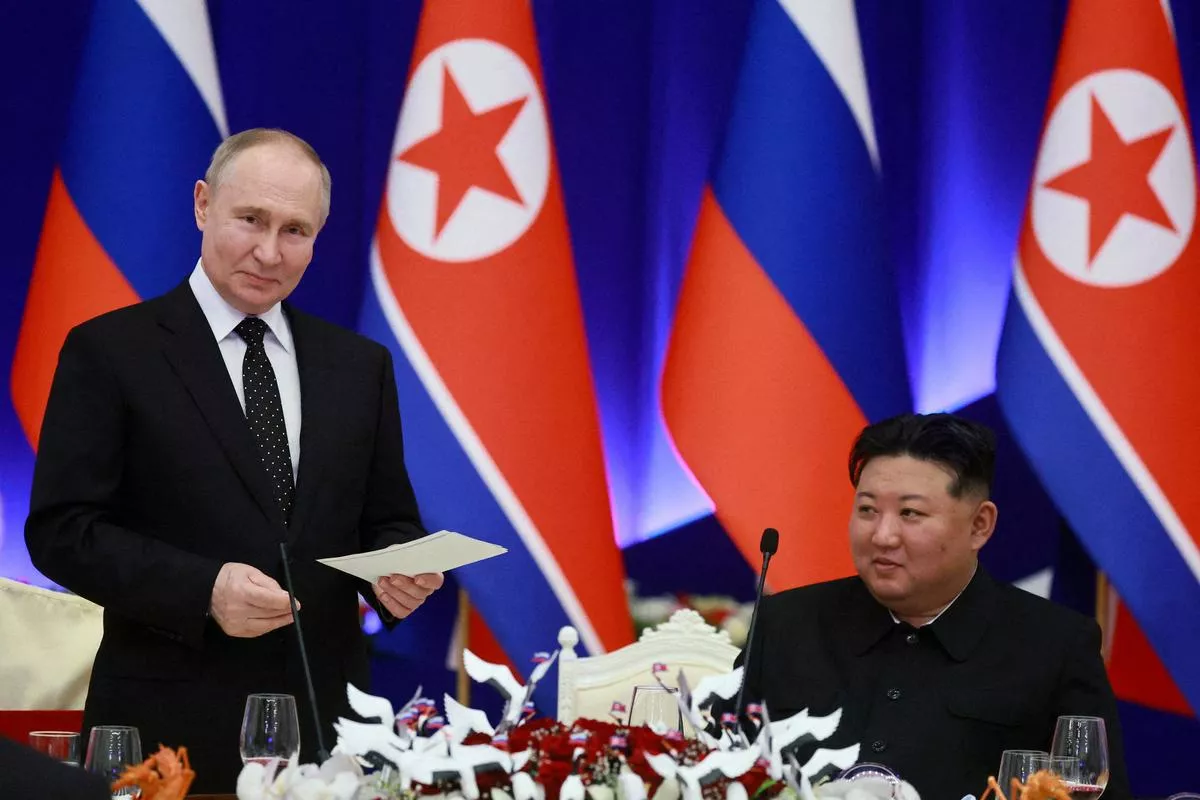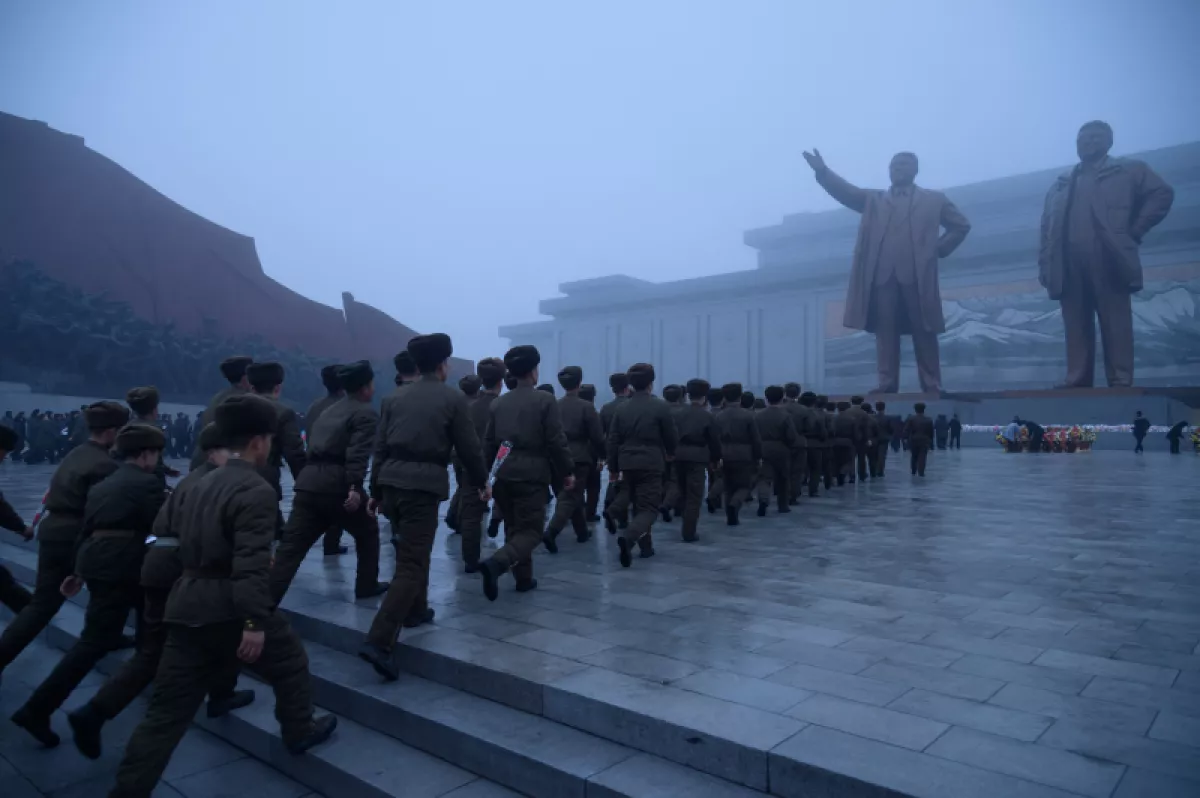Is China jealous of Moscow's blooming relationship with Pyongyang?
More than 11,000 North Korean troops are reportedly fighting on Russia's side in Ukraine, with potentially more to come. This military support has sparked speculation about how it might affect China, North Korea’s ally. Concerns include the risk to China’s reputation, the potential for security entanglements on the Korean Peninsula, and the possibility of North Korea conspiring with Russia without consulting Beijing. However, an article by the Foreign Policy publication lays out why these worries are misplaced, as China is unlikely to oppose or disrupt the Moscow-Pyongyang alliance.
China’s support for Russia in Ukraine aligns with its broader geopolitical interests. Beijing has consistently backed Russia, both rhetorically and through economic assistance, and wants Russia to avoid a “strategic defeat.” This stance is rooted in Chinese President Xi Jinping’s strong relationship with Russian President Vladimir Putin and China’s belief in defending "legitimate security interests." This concept, central to Xi’s Global Security Initiative, implies that major powers like Russia (and by extension, China) have the right to enforce control over their neighbors’ political and security affairs, even through military means. This principle underpins China’s aggressive stances toward Taiwan, India, and US allies like Japan and the Philippines.
North Korea’s support for Russia—initially through artillery and missiles and now troops—has helped Moscow during a critical phase of the war. China likely sees this as beneficial. By contributing troops, North Korea acts as a proxy for actions China might have taken if not for the risk of Western reprisals, such as tighter sanctions or export controls. North Korea’s involvement also serves Beijing’s goals of maintaining stability in Kim Jong Un’s regime, as Russia compensates Pyongyang with food, fuel, and potentially advanced military technology.

This collaboration offers strategic advantages for China. It prolongs the Ukraine war, diverting US attention and resources away from Asia. Moreover, if Russia emerges with territorial gains, it could send a powerful signal to Taiwan and other regions that resistance to major powers is futile. “North Korea sending troops to Russia represents a geopolitical exchange of mutual benefit—and the rising tide of Russia-North Korea relations raises China’s boat, too,” the article states.
While some Chinese analysts have expressed dismay at the deepening Moscow-Pyongyang ties, these voices are often from more Western-facing networks and represent a minority view in China’s leadership. Beijing’s official stance is that this military cooperation is “their own matter.” Additionally, Chinese officials may feign concern to gain diplomatic leverage with Western nations, encouraging them to seek China’s intervention while extracting concessions in return.
Despite these benefits, risks exist. Russia could provide North Korea with advanced military technologies, such as reentry vehicles or submarine systems, which could alter regional power dynamics. However, such moves would likely be limited, as the article states that Russia has a vested interest in protecting its most advanced technologies. Furthermore, cultural or operational frictions between North Korea and Russia could arise. For example, North Korea might resent high casualties among its troops or the exposure of its soldiers to Russian cultural influences, including freer internet access. Russia, in turn, could become frustrated with North Korea’s unreliable military equipment or regret involving North Korean forces if it provokes South Korea to provide military aid to Ukraine.

China, however, likely remains untroubled by these potential issues. Xi’s close relationship with Putin and China’s position as the dominant power in its partnerships with both Russia and North Korea ensure that Beijing retains significant influence. While suspicions and backbiting may exist within the Moscow-Pyongyang-Beijing triangle, the current balance of power heavily favors China, leaving little room for its partners to act independently or against its interests.
The article concludes that efforts by the United States and its allies to pressure China into restraining North Korea are unlikely to succeed. Instead, the author believes that Western nations would be better served by identifying and exploiting natural friction points between North Korea and Russia. For example, they could monitor for signs of dissatisfaction or mistrust between the two, such as concerns over casualties or equipment failures. These points of tension may offer opportunities to weaken the Moscow-Pyongyang alliance.
Ultimately, China views North Korea’s involvement in Ukraine as a useful component of its broader strategy of authoritarian cooperation with Russia. The alignment strengthens Beijing’s position against the United States and its allies, further entrenching China’s stance in a world increasingly divided along ideological lines.
By Nazrin Sadigova








